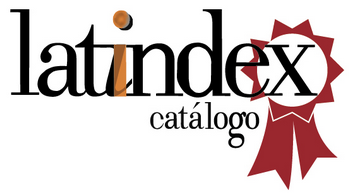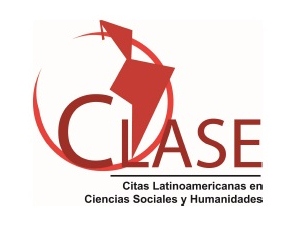Sobre derrotadores y atenuadores en John Pollock
Resumen
Los conceptos de derrotador, socavador, refutación y atenuador, introducidos por John Pollock, han servido de punto de partida teórico para el desarrollo de diversas áreas del conocimiento, tales como la epistemología, la inteligencia artificial y la teoría de la argumentación. En este artículo sostengo que, si bien estos conceptos tienen un gran potencial explicativo y normativo, su utilización requiere despejar primero algunos problemas interpretativos y conceptuales que emergen de la lectura de la obra de Pollock en su conjunto.Citas
Austin, J. (1962). How to do things with words. Oxford: Oxford University Press.
Cohen, L.J. (1977). The probable and the provable. Oxford: Clarendon Press.
Ihnen, C. (por publicar). The transferential force of a defeasible argument. In: Proceedings of the 13th OSSA Conference. Argumentation and Changing Minds. University of Windsor – May 23 - 25, 2024.
Ihnen, C. (2023). Sobre el concepto de suficiencia en la argumentación derrotable. Revista Iberoamericana De Argumentación 27, 23–60.
Johnson, R. & Blair A. (1977). Logical Self-Defense. Toronto, Canada: McGraw-Hill.
Koons, Robert, «Defeasible Reasoning», The Stanford Encyclopedia of Philosophy (Summer 2022 Edition), Edward N. Zalta (ed.), URL = <https://plato.stanford.edu/archives/sum2022/entries/reasoning-defeasible/>.
Marraud, H. (2017). «De las 7 maneras de contra-argumentar». Quadripartitaratio 2(4), 52-57.
Marraud, H. (2020). «On the logical ways to counter an argument: A typology and some theoretical consequences». En: F.H. van Eemeren & B. Garssen (eds.), From Argument Schemes to Argumentative Relations in the Wild (pp. 149-166). Cham: Springer.
Pollock, J.L. (1970). «The structure of epistemic justification», American Philosophical Quarterly (Monograph Series) 4, 62-78.
- 1973). «Laying the Raven to Rest: A Discussion of Hempel and the Paradoxes of Confirmation». The Journal of Philosophy 70 (20), 747-754
- (1974). Knowledge and Justification. Princeton, N.J.: Princeton University Press.
- (1987). «Defeasible Reasoning». Cognitive Science 11, 481-518.
- (1991). «A theory of defeasible reasoning». International Journal of Intelligent Systems 6, 33-54.
- (1995). Cognitive Carpentry: A blueprint for how to build a person. Cambridge, MA: MIT Press.
- (2001). «Defeasible reasoning with variable degrees of justification». Artificial Intelligence 133(1), 233-282.
- (2010). «Defeasible reasoning and degrees of justification». Argument and computation 1(1), 7-22.
Searle, J. (1979). A taxonomy of illocutionary acts. In: Expression and meaning. Studies in the theory of speech acts. Cambridge: Cambridge University Press.
Searle, J. & Vanderveken, D. (1985). Foundations of illocutionary logic. Cambridge: Cambridge University Press.
van Eemeren, F.H. & Grootendorst, R. (1984). Speech acts in argumentative discussions. A theoretical model for the analysis of discussions directed towards solving conflicts of opinion. Dordrecht/Berlin: Foris/Walter de Gruyter.
van Eemeren, F.H. & Grootendorst, R. (1992). Argumentation, communication, and fallacies: A pragma-dialectical perspective. Hillsdale, NJ: Lawrence Erlbaum.
Vega, L. (2011). «Inferencia». En Vega, L. y P. Olmos (2011). Compendio de Lógica, Argumentación y Retórica. (pp. 297- 301). Madrid: Editorial Trotta
Walton, D. (2002). Are Some Modus Ponens Arguments Deductively Invalid? Informal Logic 22, 19-46.
Walton, D. (2012). Finding the Logic in Argumentation. In: H. Ribeiro (ed.), Inside Arguments: Logic and the Study of Argumentation, pp. 37-55. Cambridge: Cambridge Scholars Publishing.
Una vez que un texto es aceptado para su publicación en Quadripartita Ratio, sus autores deben firmar dos documentos de carácter legal: una Licencia de uso y una Declaración de autoría.
Con la Licencia de uso, los autores autorizan la publicación de su obra y la difusión de ésta (integración en bases de datos, difusión en nuestras redes sociales, reediciones posibles, etc.). No obstante, se autoriza la descarga, reproducción y distribución de todos nuestros contenidos publicados, siempre que no se modifique el contenido y se indique su origen (nombre de la revista, volumen, número, páginas y dirección electrónica del documento).
Con la Declaración de autoría, los autores manifiestan que la obra es de su autoría, original e inédita.









